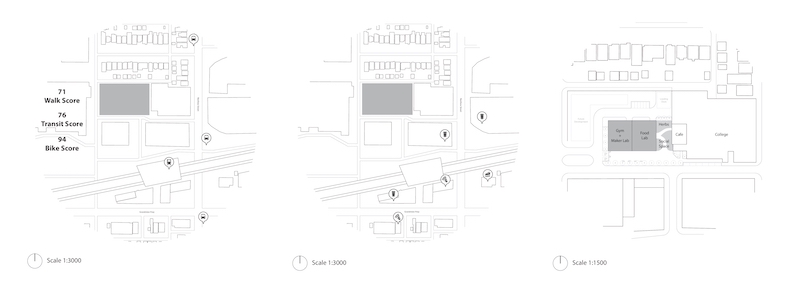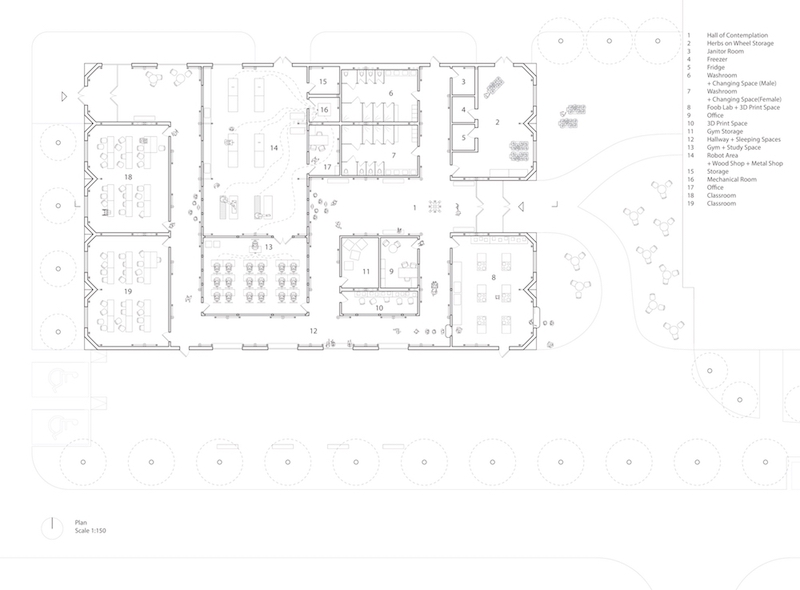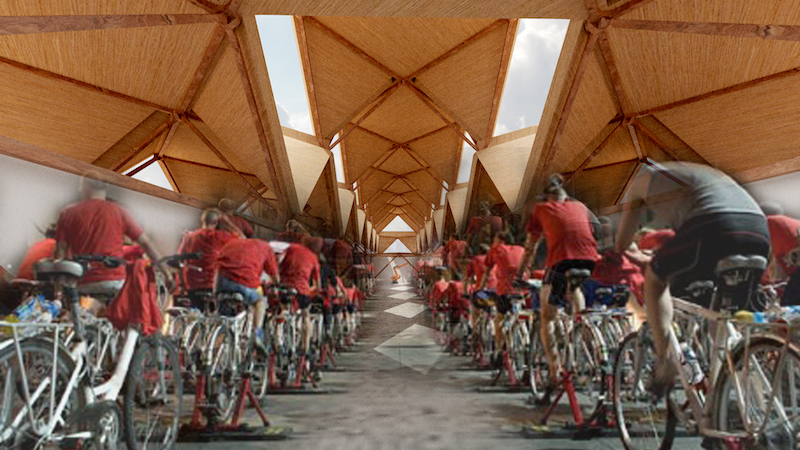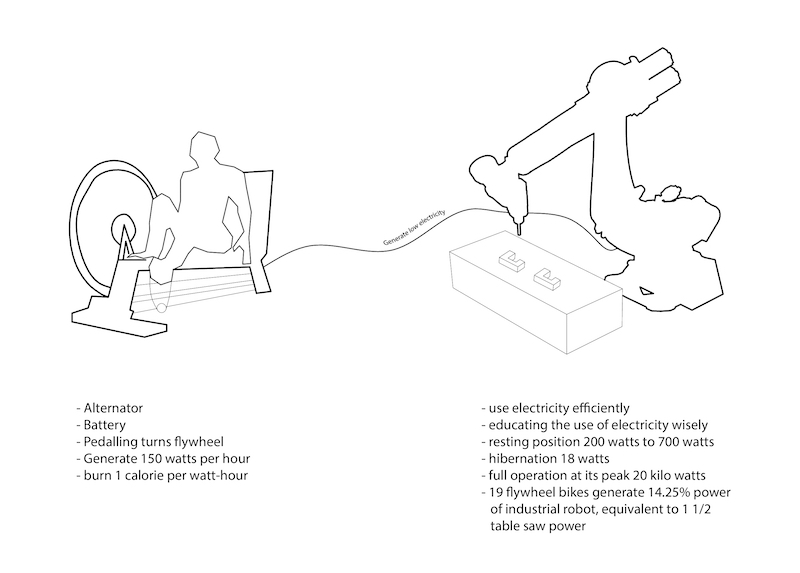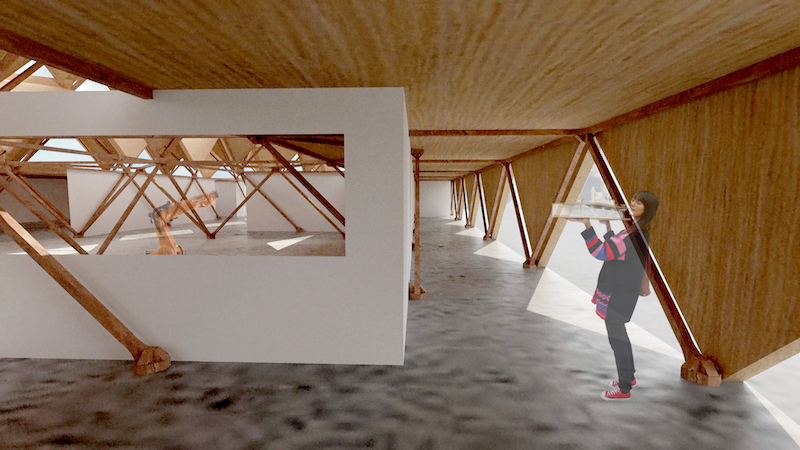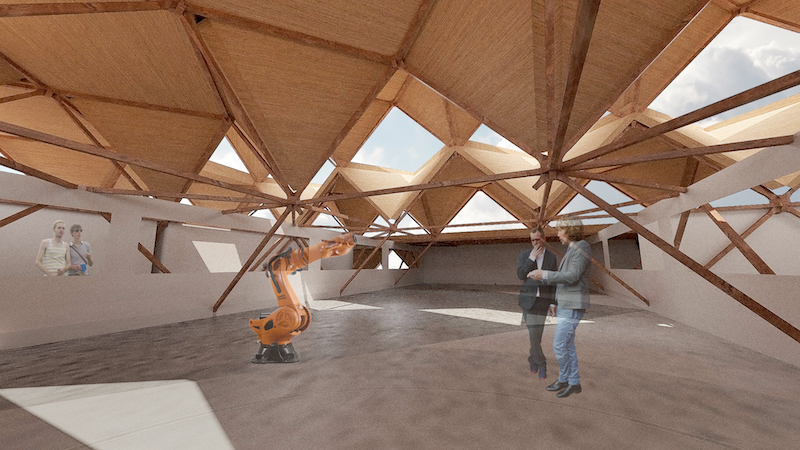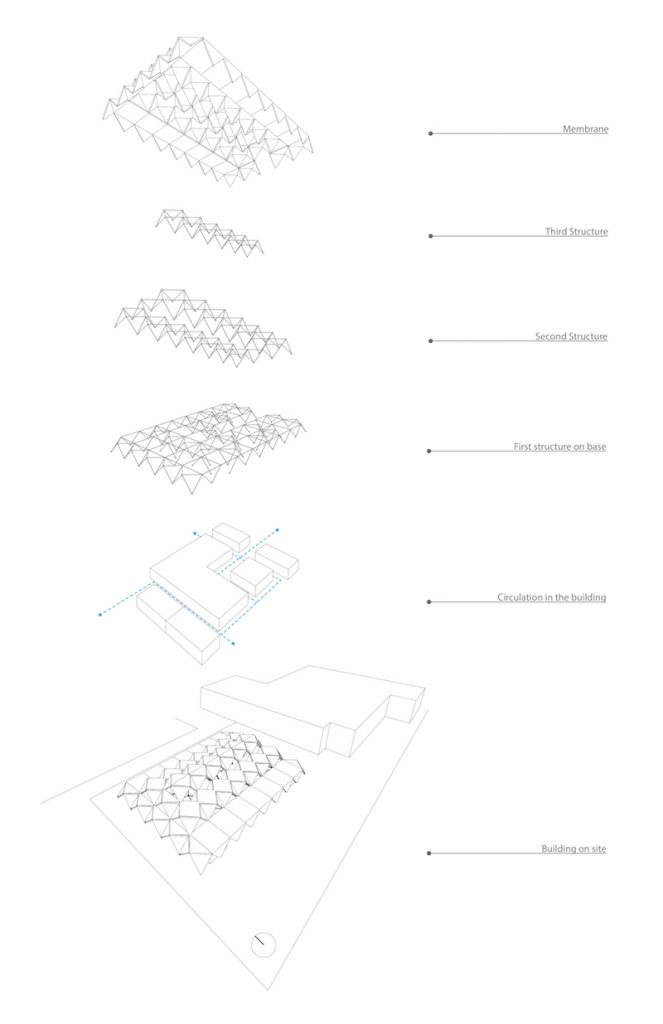by Ee Jay Loo
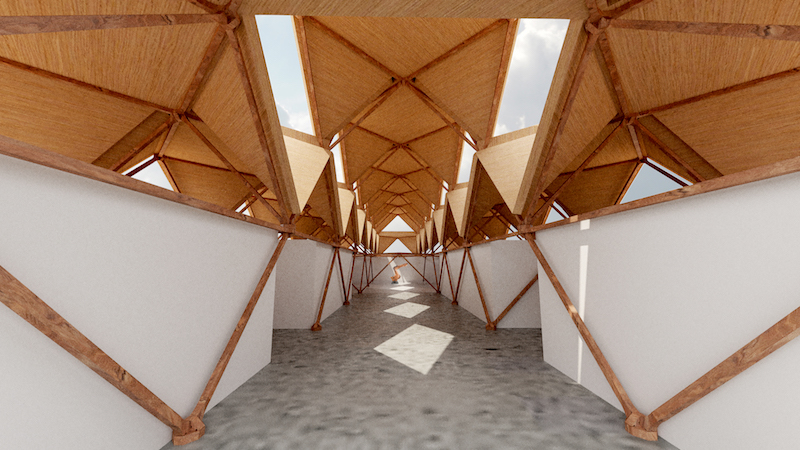
The Synthesis of Electrical Cycling & Prefabrication on Wood
Program Brief:
LaSalle College Maker Lab is an educational space for LaSalle students. The proposal of the building has 1173 square meter. The proposal building is in Vancouver. The climate in Vancouver is a moderate oceanic climate, with summer months that are typically dry, usually in July and August. On the other hand, the rest of the year is wet season, especially between October and March.
M1: Design for Integration
The design is described in the third board with diagrams.
M2: Design for Community
The site has a good transportation system. The train station and bus stop create better access for students who have no cars, to transport themselves easily around the neighbourhood as well as going to downtown Vancouver. However, there are many unhealthy foods with low budget around the site, attracting students to access unhealthy lifestyle. As a result, the gym is incorporated with maker lab to promote importance of exercise to students. Because the typology of the site is mostly flat, students are encouraged to cycle to classes.
M3: Design for Ecology
Before the design, the site is used to made up of asphalt with not much vegetation. The design proposed portable herbs (Rosemary, Bay leaves, Oregano, and Dill) on wheels. These herbs are suitable ingredients for students in Food lab. Because the site has four seasons, the herbs are required to keep in storage to avoid damaging of herbs. When the weather is appropriate, the herbs on wheel could be transferred outdoor for students to educate themselves on the herbs.
M4: Design for Water
All the roofs are tilted to the side except for the centre structure, which is a pitch roof. This allows the rainwater to flow downwards and to stored inside the drainage. As a result, the rainwater inside the drainage leaves the site through evaporation. The rainwater could be harvested for herbs on wheels.
M5: Design for Economy
The description is similar to ‘M8: Design for Resource’.
M6: Design for Energy
The gym uses electrical bike to generate electricity for the workshop as well as the industrial robot. The maker lab is an educational space. Therefore, the maker lab does not need full potential electricity to generate production on the industrial robot as a way to use electrical consumption optimally.
M7: Design for Wellness
The gym not only generates electricity for the workshop through electrical bikes, also students can exercise to keep themselves fit and burn their calories.
M8: Design for Resource
Industrial robot could create different kinds of joints to create wood structure efficiently by minimizing waste and cutting down noise impacts to surrounding homes and businesses. The structure is made of Laminated Veneer Lumber (LVL), which is protected with metal membrane from the exterior.
M9: Design for Change
The wood joints are characterized as customized modular and interlock. As a result, the structure can withstand earthquake. At the same time, the gym can generate electricity if blackout happens during the catastrophic events.
M10: Design for Discovery
Wood, robotic fabrication, and electrical bike as sustainable solution. Wood is a renewable resource and absorbs carbon as it grown. Besides function as sustainable material, wood is light to transport, can be used as both structure and finish, and is easily prefabricated, lending itself to energy efficient construction as well as facilitating a large variety of architectural form and expressions. A proposal maker lab for La Salle college, the project seeks how new technologies in robotic fabrication of wood can contribute sustainable action to make an educational space, health awareness, and energy consumption awareness.
